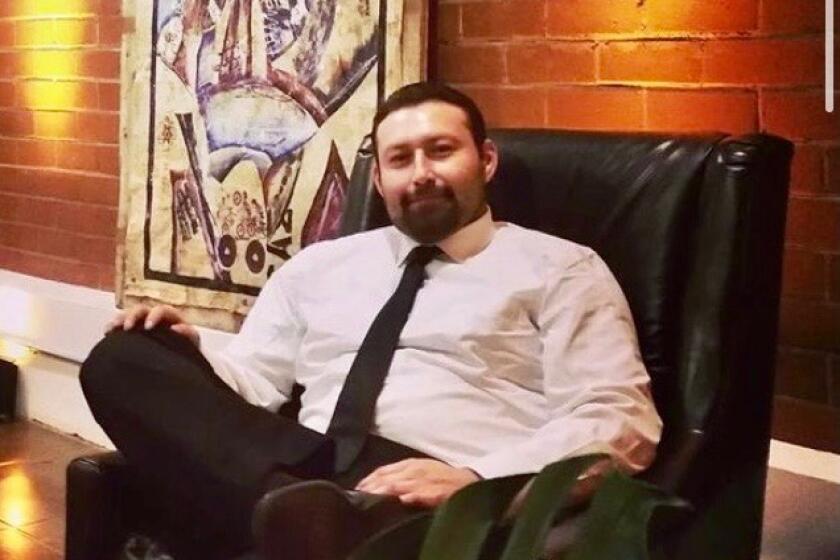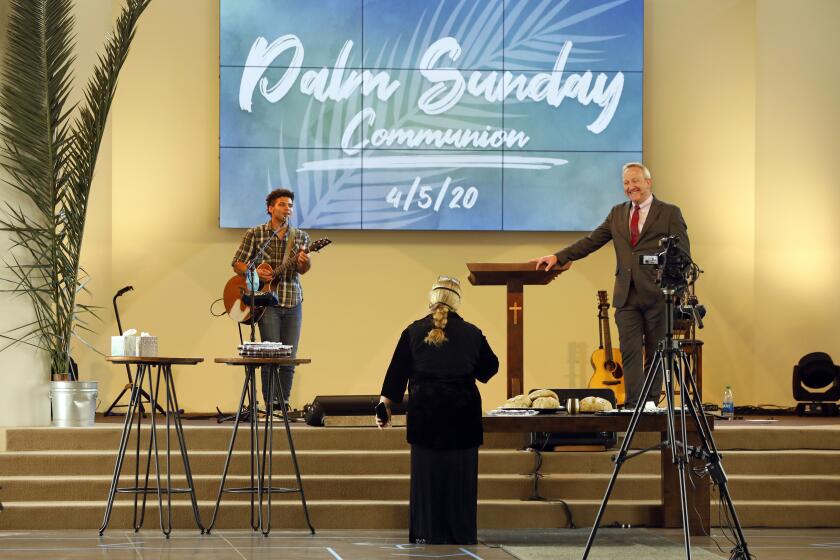Mayor Doesn’t Rule Out New Taxes
While heralding $27.5 million in tax breaks that kicked in for Los Angeles businesses with the new year, Mayor Antonio Villaraigosa declined Wednesday to commit to no new taxes when his first city budget is released in April.
The mayor acknowledged he was exploring ways to boost revenue for the city’s shaky treasury, and he said taxes and fees were still on the table.
“It would be irresponsible for me to make a commitment one way or the other on that issue,” Villaraigosa said. “We are going to have to look at our needs this year. We are going to look at our finances and make decisions accordingly.”
As recently as last month, Villaraigosa said he might have to fill a potential $248-million shortfall caused by rising costs, including pay raises and larger contributions to pension funds.
Even before he took office in July, he ordered aides to begin scrutinizing the budget for possible cuts in waste and inefficiency.
One question is whether Villaraigosa will have to find new revenue to increase the budget, which this year is $5.95 billion, to carry out his campaign promise of expanding the police force, or whether he can find enough cuts in other programs to cover the cost.
The mayor has raised the idea of going to voters, possibly throughout Los Angeles County, with a sales-tax increase to pay for more police.
The city is also expected to release a study this month that spells out how much revenue it can raise by imposing new fees for trash collection. Currently, the city charges a refuse equipment fee but not a direct pickup fee for collecting trash from single-family residences.
The city administrative officer’s report is expected to tell the council how much it would have to levy to cover the $209-million annual cost of collecting trash from all single-family homes, as well as provide options for lower fees, or a phase-in, said one high-level city source. City officials calculated last summer the fee would have to be about $27 per month to recoup the full cost.
Any proposal is likely to be controversial.
The tax breaks publicized Wednesday by the mayor were approved in 2004 by the City Council while Villaraigosa was a member of that body and James K. Hahn was mayor.
The tax reforms eliminate gross receipts tax for businesses that make less than $50,000 this year and extend the exemption to firms making under $100,000 next year -- covering 61% of the city’s businesses.
This year, the 260,000 firms that are not exempt will see their business taxes decline 3.1%, with further reductions reaching 15% in future years.
In addition, creative artists, including backstage workers in the movie industry, will no longer be required to pay a gross receipts tax if they make $300,000 or less each year -- a change that will exempt 85% of such business enterprises.
Film production companies will also receive tax breaks under the package drafted by the Business Tax Advisory Committee and pushed through the council more than a year ago by members Eric Garcetti and Wendy Greuel.
The tax relief this year is $27.5 million. When all the breaks are in place, the package will provide $92 million in tax relief each year.
The reforms, the mayor said, “are designed to support businesses, small and large, and make Los Angeles a business-friendly city that attracts growth and creates jobs.”
To qualify for the tax breaks, companies must register with the Office of Finance by Feb. 28, even if they are exempt from paying taxes. The mayor said the city is launching an education campaign on the program that will include radio and television ads.
Representatives of the Los Angeles Area Chamber of Commerce, Central City Assn. and Valley Industry and Commerce Assn. joined the mayor Wednesday at City Hall to publicize the tax reforms, but some said more tax relief is needed.
Valley Industry and Commerce Assn. board member Mel Kohn, who was a co-chairman of the city’s Business Tax Advisory Committee, said that after taxes reach the 15% reduction level in the next five years, he would like to see them cut an additional 10%.
“Business tax reform is a work in progress,” he said. “I was hoping we would even have a larger cut.”
Kohn said he is not concerned that the mayor is considering other new taxes, including a possible sales tax to hire more police officers.
However, Carol Schatz, president of the Central City Assn., said she would be concerned if the sales tax increase was proposed only for the city of Los Angeles and not for the whole county, because then it could put L.A. companies at a competitive disadvantage.
More to Read
Sign up for Essential California
The most important California stories and recommendations in your inbox every morning.
You may occasionally receive promotional content from the Los Angeles Times.











